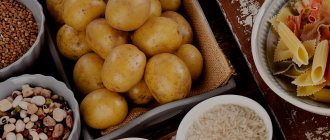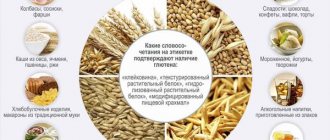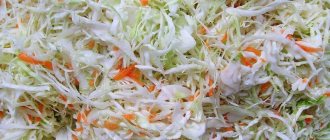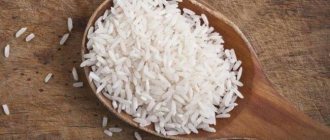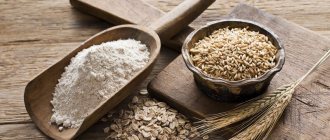It would probably be wrong to say that the human body needs protein, since protein is part of the body itself, without it cell structure, growth, and metabolic processes are simply impossible. In order for the body to absorb vitamins and minerals, protein is also needed. When a person wants to lose weight, almost any diet contains proteins.
If a person wants to correct his figure, plays sports and goes to the gym, they turn to squirrels. In cases where the body needs to restore strength, suffered injuries, diseases, operations, proteins are also irreplaceable.
Why is protein necessary for the body?
Protein in the body is the basis for cell growth and development.
If we consider the body as one large mechanism, protein will be responsible for starting and proper operation. It is the basis for the growth and development of cells and tissues, and is involved in all vital processes.
Without it, normal functioning of the immune system is impossible; it is also involved and responsible for the functioning of a number of hormones. In order for the process of replacing dead tissue to occur, the body needs protein.
Very often you can find recommendations about taking protein, which allows you to build muscle mass, which is absolutely not groundless. This is the main element that is involved in the maintenance, recovery and growth of muscles.
During sports, the process of restructuring muscle tissue occurs; the stronger the physical activity, the more intense the process, so the need for protein intake increases. Lack of protein can cause very serious problems in the body.
This will affect enzymatic systems, and changes in hormonal levels may occur. Without protein, normal brain function is impossible, and its lack can cause a number of diseases. There may be cases of dystrophy, and in childhood it is responsible for the growth of the child.
In cases where a person does not consume enough protein, it can manifest itself in any vital process of the body.
Contraindications
Like all effective methods of weight loss, a protein diet has contraindications. It is best, before you start switching to a protein menu, to consult a doctor with whom you regularly see. This diet is not suitable:
- pregnant women and nursing mothers;
- elderly people and young children;
- anyone diagnosed with cancer;
- people with chronic kidney and gastrointestinal disorders;
- those who suffer from diabetes and other metabolic disorders.
In addition, you should not start losing weight during periods of increased physical or emotional stress. These include not only final exams, but also work pressure or sudden climate change.
You should not go on a diet if you have acute respiratory or infectious diseases, or while taking any medications. You must first fully recover from the illness and take a course of the necessary medications, and only then begin to lose weight.
During a protein diet, you can take vitamins, as well as complexes of macro- and microelements.
How to use it correctly
The protein requirement is different for everyone.
It is worth noting right away that the required amount of protein for a person who leads a passive lifestyle differs from the norms needed by athletes.
During sports activities, all consumed protein is quickly processed and wasted.
If you consume a large amount of protein without physical activity, it will not bring a positive effect, it can only harm your health.
Therefore, although the benefits for the body are great, the consumption level must still be observed. For an average person, the daily value is approximately 1.3 grams per 1 kilogram of a person's weight. If a person plays sports and has a goal to build muscle mass, for such people the norm will be from 2 to 3 grams per 1 kilogram of body weight.
It is imperative to remember how to properly consume proteins; protein alone is not enough for the body; nutrition must be complete.
It is possible to achieve good results, in the process of saturating the body, only with the help of a balanced diet.
Do you want to be healthy and keep your body in good shape?
Join 1000+ people who receive interesting insider tips and advice on a healthy lifestyle, proper nutrition and training!
No spam, only useful and interesting content!
Numerous studies have established that the protein component of the diet should be within 12-17% of the total daily calorie intake. It is this value that will cover the body’s need for protein.
To find out this figure in grams, for each individual case you need to make simple mathematical calculations.
And the first thing you need to find out is the very necessary daily calorie content, in other words, the energy requirement of the body.
What you need to know
Both animal and plant foods contain protein.
There is still debate about which product is better to consume, animal or plant origin.
If we talk specifically about protein, then there is no big difference between these products; it’s a completely different matter when it comes to proper food intake, which involves the full intake of all the substances it needs into the body.
Therefore, before you create a menu, you need to make sure that it includes products that will provide the body with everything it needs. In addition, it is necessary to take into account the ratio of fats and carbohydrates, since different products can contain the same amount of proteins, but at the same time have different fat content.
Protein diet rules
The protein diet is designed in such a way that our daily menu consists mostly of proteins. But when preparing a diet for every day or for the whole week, you need to follow certain rules:
- Monitor the quality of the products. Canned food, smoked meats, and semi-finished products are also prohibited during the diet, although they can be classified as proteins. Fast food and other similar foods contain not only fast carbohydrates, but are also rich in animal fats and harmful additives.
- Give preference to lean types of meat and fish. This includes poultry, rabbit, ocean and sea fish. It is better to temporarily avoid fatty pork and beef, as well as offal. Meat rich in lipids takes longer to digest and puts more strain on the gastrointestinal tract and kidneys.
- Limit spices, preservatives, etc. With an abundance of protein foods, the kidneys are subject to greater stress than usual. Excess salt, spices, and flavor enhancers retain fluid and create additional difficulties for the excretory system.
As with other diets, remember to drink enough fluids and monitor your condition. If it begins to worsen, you should immediately stop the protein diet and consult a doctor.
Products
Hard cheese contains a lot of protein.
The very first thing worth considering is dairy products, which, in addition to their high protein content, have a number of beneficial substances for the body.
- In 100 grams of cheese: protein - 18g, fat -20.1g, carbohydrates - no, calorie content -260;
- In 100 grams of kefir 1%: protein – 3g, fat – 1g, carbohydrates – 4, calorie content – 30;
- In 100 grams of milk 1%: protein - 3g, fat - 1g, carbohydrates - 0.2g, calorie content - 5.1;
- In 100 grams of cream: protein – 2.8g, fat – 20g, carbohydrates – 3.7g, calorie content – 206;
- In 100 grams of sour cream: protein – 1.5 g, fat – 48.2 g, carbohydrates – 2, calorie content – 447;
- In 100 grams of hard cheese: protein – 30g, fat – 35g, carbohydrates – 3, calorie content – 300;
- In 100 grams of processed cheese: protein – 20g, fat – 20g, carbohydrates – 3.8g, calorie content – 271;
- In 100 grams of cottage cheese (0.6%): protein – 16g, fat – 0.6g, carbohydrates – 1.6, calorie content – 88.
No less useful are meat products that have a sufficient amount of protein.
- In 100 grams of lamb: protein – 24g, fat – 25g, no carbohydrates, calorie content – 300;
- In 100 grams of beef: protein – 21g, fat – 9g, contains no carbohydrates, calorie content – 166;
- In 100 grams of goose: protein – 29g, fat – 22g, no carbohydrates, calorie content – 319;
- In 100 grams of turkey: protein – 24g, fat – 7g, no carbohydrates, calorie content – 165;
- In 100 grams of rabbit: protein – 24g, fat – 9g, contains no carbohydrates, calorie content – 181;
- In 100 grams of chicken: protein – 25g, fat – 6g, no carbohydrates, calorie content – 150;
- In 100 grams of chicken liver: protein – 20g, fat – from 3 to 10g, carbohydrates – 2, calorie content – 135;
- In 100 grams of chicken heart: protein – 20g, fat – 9g, carbohydrates – 1g, calorie content – 150;
- In 100 grams of chicken stomach: protein – 20g, fat – 5g, contains no carbohydrates, calorie content – 136;
- In 100 grams of beef brains: protein – 11g, fat – 8.6g, no carbohydrates, calorie content – 124;
- In 100 grams of lamb liver: protein – 19g, fat – 3g, no carbohydrates, calorie content – 100;
- In 100 grams of beef liver: protein – 17g, fat – 3g, no carbohydrates, calorie content – 100;
- In 100 grams of pork liver: protein – 18g, fat – 3.6g, contains no carbohydrates, calorie content – 110;
- In 100 grams of pork: protein - up to 25g, fat - up to 50g, has no carbohydrates, calorie content - 332;
- In 100 grams of veal: protein - 20g, fat - 8g, no carbohydrates, calorie content -148;
- In 100 grams of sausage: protein - from 10 to 20g, fat - from 11 to 35g, carbohydrates - from 1 to 4.2g, calorie content - up to 420;
- In one egg: protein – 6.7g, fat – 12g, carbohydrates – 0.6g, calorie content – 75;
- In one yolk: protein – 2.7g, fat – 5.2g, carbohydrates – 0.1g, calorie content – 59;
- In one protein: protein – 3.9 g, fat – 0, carbohydrates – 0.3 g, calorie content -17;
No less useful are proteins of plant origin, which must be present in the diet of any person. For example, regular peas have a protein value of 23 g per 100 grams of product, which corresponds to the protein capacity of chicken.
Also high in protein is lentils, which are known as a healthy product and contain 24.8 g of protein. Beans offer a high protein content, with 22.3 g of protein per 100 g of product. Another equally healthy and protein-rich product is chickpeas, which contain 20.1 g per 100 g of product.
Quite often people turn to nuts as a very healthy product. This is completely justified, since they contain fats necessary for the body and are involved in important metabolic processes.
If we talk about the protein content in them, then the indicators are very high, but it is worth considering that they cannot be consumed in large quantities. Therefore, they should be used and introduced into the diet as a food supplement, but not as a replacement for a source of protein.
For example, the protein content in peanuts is the highest and is 26.3 g per 100 g of product; it is slightly less in sunflower seeds per 100 g - 20.7 g. You can also use almonds, which contain 18.6 g, slightly less in hazelnuts, which amount to 16.1 g.
This video will tell you about foods containing protein:
Quitting the diet
Proper exit from a protein diet will help avoid excessive stress on the intestines and digestion, as well as the excretory system. The basic rule is that the exit should last twice as long as the diet itself. For example, if you adhered to the restrictions for ten days, it will take twenty to gradually restore your diet.
It is necessary to introduce carbohydrates and other foods gradually and very smoothly. Start with vegetables and fruits, adding them little by little to the menu. Cereals, pasta, sugar and potatoes should be introduced last and also gradually, gradually increasing not only the variety of carbohydrate foods, but also their quantity.
To maintain the results, give up some bad habits:
- limit the consumption of sweets and starchy foods, especially baked goods, cakes, and carbonated drinks;
- give up fast food and semi-finished products - they contain products of poor quality, seasoned with preservatives, dyes and flavor enhancers;
- bake foods in the oven or steam them, avoiding fried, fatty, spicy foods;
- maintain a high level of physical activity - this not only helps you lose weight, but also helps fight stress;
- control your alcohol consumption - regular gatherings with a can of beer in the evenings will have a detrimental effect not only on your figure, but also on the condition of your hair, skin and the whole body as a whole.
References
- Kishkun, A.A. Immunological and serological studies in clinical practice. - M.: Medical Information Agency, 2006. - 536 p.
- Sarapultsev, P.A., Sarapultsev, A.P. The role of c-reactive protein in the acute phase response in myocardial infarction. Cytokines and inflammation, 2013. - T.12. - No. 4. - P. 18-24.
- Biasucci, M., Liuzzo, G., Colizzi, C. et al. Clinical use of C-reactive protein for the prognostic stratification of patients with ischemic heart disease. Italian heart journal: official journal of the Italian Federation of Cardiology, 2001. - Vol. 2(3). — P. 164-171.
- Russell, A., Cunninghame, G., Shepherd, C. et al. Polymorphism at the C-reactive protein locus influences gene expression and predisposes to systemic lupus erythematosus. Human molecular genetics, 2004. - Vol. 13(1). — P. 137-147.
- Mevorach, D., Mascarenhas, J., Gershov, D. et al. Complement-dependent clearance of apoptotic cells by human macrophages. The Journal of experimental medicine, 1998. - Vol. 188(12).

